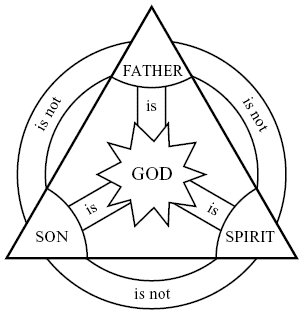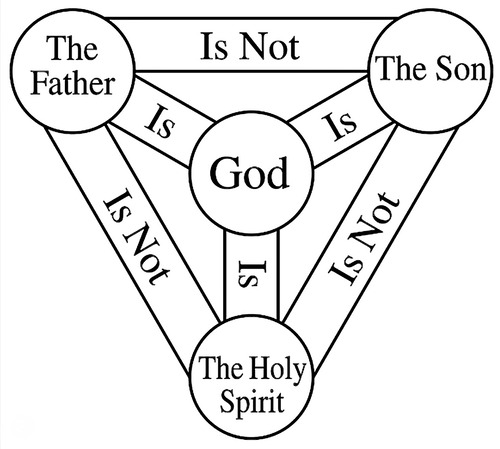Why Does God Choose Some and Not Others for Salvation?
Why Does God Choose Some and not Others for Salvation? Lessons from Romans 9
Throughout church history, Romans 9 has been one of the most challenging and controversial passages for Christians to grasp and accept. In it, Paul addresses head-on the weighty and sobering question: why does God choose some for salvation, while passing over others in their unbelief. Many struggle to come to grips with this doctrine of unconditional election: they argue it seems to make God appear unjust or inconsistent in His love.
Anguish over Israel’s Unbelief (Romans 9:1-5) Paul begins by expressing his deep anguish over the fact that the majority of his fellow Israelites have rejected Jesus as the promised Messiah. Despite being God’s chosen people, most Jews do not accept the salvation offered in Christ. This reveals ethnic descent alone does not determine salvation—God’s sovereign, electing grace is required.
Has the Word of God Failed? It Hasn’t, Never Will (Romans 9:6-13) Paul explains God’s choice has never been based simply on natural human descent, but on His sovereign purposes in election. He uses the examples of God choosing Isaac over Ishmael and Jacob over Esau before either had done anything good or bad. God declared “Jacob I loved, but Esau I hated” before their births, demonstrating His unconditional election at work. The Word of God has not failed; rather, it is being fulfilled according to His sovereign plan.
Is God Then Unjust? Far From It (Romans 9:14-18) Paul affirms God’s absolute freedom in showing mercy to, or hardening, whomever He wills, just as He told Pharaoh (v.17). This may seem unjust to us, but as the Creator, God has the sovereign right to do as He pleases with His creatures. “Who are you, O man, who answers back to God?” No one can question His decisions or accuse Him of injustice.
Why Then Does God Still Find Fault? (Romans 9:19-23) In anticipation of the objection that God must therefore be unjust, Paul asks, “You will say to me then, ‘Why does He still find fault? For who can resist His will?'” His response is simply this: we as creatures have no right to question the Creator’s judgments and ways. He creates different vessels, some for honourable use and some for dishonourable, in order to demonstrate His wrath toward sin and make known the riches of His mercy on the elect.
Though the reality of hell unsettles us, we must recognize none of us are truly innocent before a holy God. Both the elect and non-elect alike have earned eternal separation through our wilful sin. God would be just to condemn all to that fate. When we question the fairness of divine judgment, we foolishly forget our own culpability. The real mystery is not that some face condemnation, but that any are rescued from the hell we all rightly deserve on account of our rebellion against the Almighty.
The Yardstick for Salvation: The Called will Respond in Faith in Christ (Romans 9:24-33) Paul affirms that God’s sovereign choice extends to calling people from both Jews and Gentiles to salvation through faith in Christ. Those who stumble over Christ in unbelief will be judged, while those who put their trust in Him—who is the cornerstone—will be saved, whether Jew or Gentile. The yardstick for salvation: the called will respond in humble faith in Christ alone.
The Difficult Doctrine of Double Predestination Here Paul affirms the doctrine of “double predestination”—that in His sovereignty, God not only elects some to salvation, but also chooses to pass over others, allowing the latter to follow their sinful rebellion and to experience His wrath. He prepares both vessels of mercy and vessels of wrath, the one to demonstrate His saving grace, the other His justice against sin.
Though difficult to grasp, we must simply accept this biblical truth—God unconditionally chooses the destinies of all people to put His glory on display, mercifully saving some and justly judging others. Our judgment cannot question His sovereign rights and ways.
Our Only Appropriate Response: Humble Worship and Yielding This doctrine of unconditional election is certainly humbling and unfathomable to our finite, human minds. But Scripture is clear—”He has mercy on whom He desires, and He hardens whom He desires.” Though it shakes our pride, it also magnifies God’s awesome majesty and sovereignty over all things. We can simply praise Him that He has graciously chosen to save anyone at all through faith in Christ.
While the doctrine of God’s sovereign, unconditional election is difficult to accept, it places upon each of us a weighty choice. If God indeed graciously chooses some for salvation and passes over others in their sinful rebellion, our appropriate response is one of humble submission. We dare not arrogantly question or resist the Creator’s rights over His creation. Instead, we must repent of our sins and unbelief, cry out for His mercy, and put our faith in Christ alone as the only way. If God is opening our heart to the truth of His sovereign grace through this teaching, we must not harden ourselves but respond in humble, grateful faith while the offer of salvation remains. For those whom God chooses and draws to Himself, there is immeasurable reason for awestruck worship of His amazing grace towards undeserving sinners.
Related Reads
Editor’s Pick

Sacred Fury: What Christ’s Temple Cleansing Truly Means
Mark 11 records the crack of a handmade whip that echoed through the temple corridors. Tables crashed to the ground, [...]

Did Jesus Cleanse the Temple Twice?
OR DID JOHN DISAGREE WITH THE SYNOPTICS ON TIMING? One of sceptics’ favourite "gotcha" questions targets what they see as [...]

Self-Authentication: Why Scripture Doesn’t Need External Validation
"How can the Bible prove itself? Isn't that circular reasoning?" This objection echoes through university classrooms, coffee shop discussions, and [...]

The Racial Diversity Question: Does the Bible Have Answers?
Walk into any bustling metropolis today and you'll likely witness humanity's breathtaking diversity—the deep ebony skin of a Sudanese family, [...]

Do Christians Need Holy Shrines? Why the Reformed Answer Is No
Walk into a medieval cathedral and you'll encounter ornate shrines, gilded reliquaries, and designated "holy places" where pilgrims gather to [...]

If God Is Sovereign, Why Bother Praying?
DOESN’T DIVINE SOVEREIGNTY OBVIATE PRAYER? **Editor’s Note: This post is part of our series, ‘Satan’s Lies: Common Deceptions in the [...]

I Want To Believe, But Can’t: What Do I Do?
"I want to believe in God. I really do. But I just can't seem to make it happen. I've tried [...]

BC 1446 or 1250: When Did the Exodus Really Happen?
WHY REFORMED SCHOLARS SUPPORT THE EARLY DATE Many a critic makes the claim: “Archaeology has disproven the biblical account [...]

Does God Know the Future? All of It, Perfectly?
Think about this: our prayers tell on us. Every time we ask God for something, we’re confessing—often without realising it—what [...]

Can Christian Couples Choose Permanent Birth Control?
Consider Sarah, whose fourth pregnancy nearly killed her due to severe pre-eclampsia, leaving her hospitalised for months. Or David and [...]





